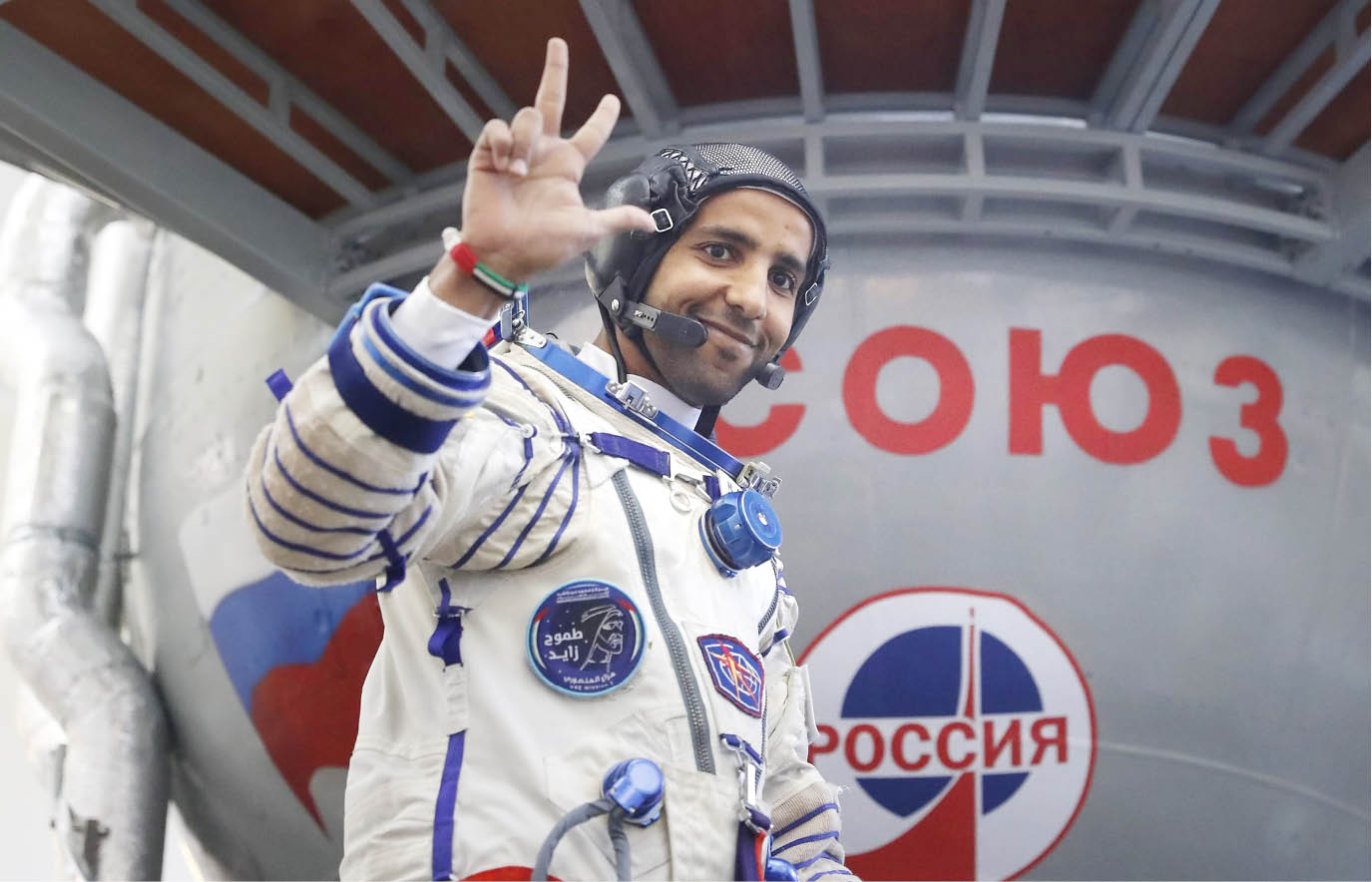UAE sends first astronaut into space, as Nigeria waits for 2030
The United Arab Emirates sent its first astronaut into space on Wednesday, September 25. Emirati astronaut Hazzaa al-Mansoori blasted off from Kazakhstan, thus becoming the first Arab to reach the International Space Station (ISS). The trip was made on a Russian spacecraft with two other astronauts -Russia’s Oleg Skripochka and NASA astronaut Jessica Meir. The […]

The United Arab Emirates sent its first astronaut into space on Wednesday, September 25. Emirati astronaut Hazzaa al-Mansoori blasted off from Kazakhstan, thus becoming the first Arab to reach the International Space Station (ISS).
The trip was made on a Russian spacecraft with two other astronauts -Russia’s Oleg Skripochka and NASA astronaut Jessica Meir. The spacecraft docked after a six-hour trip.
A video went viral showing the three of them entering through a hatch to join their colleagues who were all smiles while hugging them.
NASA tweeted about the history breaking event, saying, “The three entered the orbiting lab and joined six of their station crewmates for a joyful crew greeting ceremony today.”
Also, Crown Prince Mohamed Bin Zayed of Abu Dhabi, de facto leader of the UAE, tweeted “I proudly watched as Hazza al Mansoori lifted off into space. This event strengthens our confidence in our youth who will take our nation to new heights and reinforces our ambitions for the future.”
Thirty five-year-old Hazza who, must be happy to have achieved his dream mission, has gotten love and support from around the world since his launch into space. In a tweet before the launch at Baikonur Space Centre, the former UAE armed forces pilot said he was “filled with indescribable feeling of glory and awe.”
“Today, I carry the dreams and ambition of my country to a whole new dimension. May Allah grant me success in this mission,” he said.
He will spend eight days on the ISS and will be the first Emirati on the orbiting laboratory. Hazza will return to earth with NASA’s Nick Hague and Russian cosmonaut Alexey Ovchinin on October 3. His companions are set to remain on the ISS until the spring of 2020.
Since the story went viral, some Nigerians have expressed hopes about the possibilities of Nigeria achieving the same feat and how it will motivate the Nigerian government to achieve what was promised in 2017 by Nigeria’s Science and technology minister, Ogbonnaya Onu when Nigeria announced plans to send an astronaut into space by 2030, as part of its drive to develop a world-class space industry.
The minister had said that “Space is a major asset that Nigeria must be involved in for the purpose of protecting national interests.”
The Director Centre for Satellite Technology Development, Dr. Spencer Onuh, had said then that “To train an astronaut from selection to flight takes about eight years. So, 2030 is realistic in my opinion.”
Victor Iko-Ojo, a mechanical engineering graduate from the Federal University of Technology Minna, expressed hope that what the minister said would come true.
“It would be great if Nigeria joins the growing league of space faring nations like India, China, Japan, Canada, Russia, the United States and now, the United Arab Emirates. Then, people like me in the technology and science field can dare to dream of being astronauts in this country.”
Nigeria in 2003, 2007 and 2011 launched its satellites from China, Italy and Russia respectively which are outside the equatorial orbit.
The National Space Research and Development Agency (NASRDA) has made extensive and creative use of the satellites; from analyzing climate data, improving farming practices, to retrieving hostages from Boko Haram, and officials argue this proves that space exploration is essential for Nigeria.
For Nigeria, the ambition of launching an astronaut into orbit represents a greater challenge than Nigeria’s previous missions, but leading figures from the space industry are optimistic.
